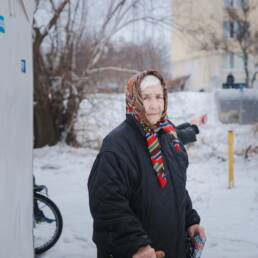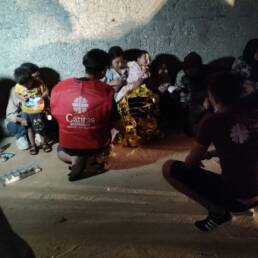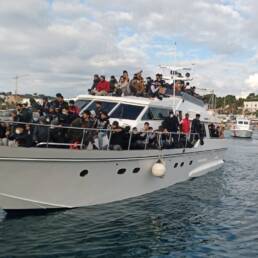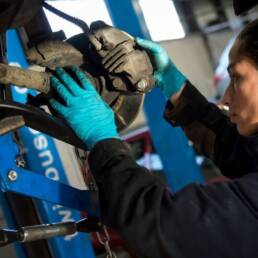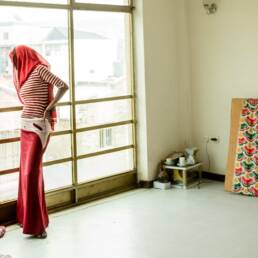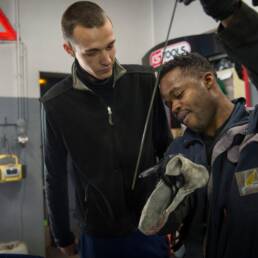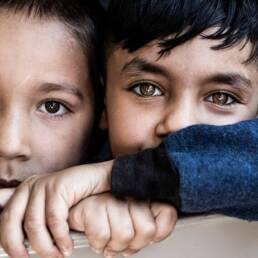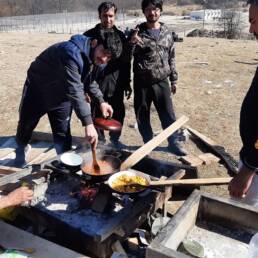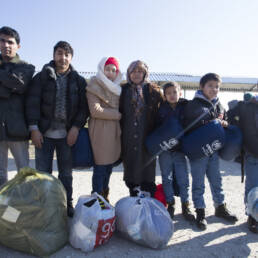Author
Leticia Lozano
Communication Officer
Caritas Europa
When Marie Chantal Uwitonze talks about being part of a diaspora she knows what she’s talking about.
The founder of the African Diaspora Network Europe (ADNE) was born and raised in Rwanda before travelling to study abroad. She studied international law and diplomacy at the National School of Administration in Algiers where she also worked for the UN Development Program and the GIZ. She arrived in Belgium in 2010 to pursue her postgraduate studies in international relations at the Catholic University of Louvain, in Belgium.

Her book “European Union, peace-keeping actor in Africa”, published in 2014, catapulted her to the European Parliament as Adviser on International Development to Belgian MEP Louis Michel. She specialised on Development Cooperation and European Union-African Caribbean and Pacific (EU-ACP) partnership. There, she came to understand not only what being part of a diaspora means but also the need for an organised and vocal diaspora.
For over a decade, including her years as parliamentarian adviser but also while working at other international institutions such as the UN Population Fund, she came to realise a painful reality:
What I discovered every time, migration or development cooperation were discussed was that there was always someone who had never been on the migrant route telling you what is the problem, someone who had never been to Africa telling you how Africa could do more”, she said in an interview in a summer afternoon in Brussels.
High-level discussions were a sort of “one-way dialogue” while the voices of those directly affected by their outcomes were completely absent. The role of diaspora organisations was to bring those voices to the table.
Uwitonze decided to get in touch with the existent diaspora organisations in EU countries and organise their participation to several specialised conferences and events at the European level.
She decided to formalise her efforts and the links she was developing by funding the African Diaspora Network Europe (ADNE) in 2015.
“There was a series of development debates at the European Union level during 2015, the European Year for Development and also the year of the adoption of the 2030 Agenda”, Uwitonze recalls, “then I really saw the opportunity to mobilise the diaspora so I started an ad-hoc movement”, said the holder of a double citizenship, Rwandan and Belgian.
ADNE has participated in several events, including the largest conference on development, the European Development Days (EDDs), including one hosted by Caritas this year. ADNE also initiated the annual Global Diaspora Week at the European Level.
Positive views on migration
ADNE participates regularly in encounters with European institutions and is an observer member of the European Commission (EC)’s Policy Forum on Development. It is the only diaspora organisation that presented a declaration at the Valetta Summit on Migration in 2015. The first request to the EU and its Member States in this declaration reads: “Recognise migration as a positive phenomenon for economic development of both countries of origin and hosting countries.”
Migrants bring new expertise and energy to Europe, and are clearly present in the economy but after the crisis of 2015 the word “migrant” got a negative connotation, explains Uwitonze, which worsens ongoing issues of discrimination in the labour market. The need to counterbalance this trend mobilised diaspora groups all over Europe, she said.
Some people do not understand that being an expat from Africa is not different from being a European expat of the same profile, or American, or Russian”, Uwitonze said. “But still many people of migrant background have difficulties integrating into the labour market even when they are highly skilled because they are not considered as equal due to discrimination.”
Diaspora organisations understand different backgrounds and profiles of migrants, and how to best integrate them into their receiving communities and can thus facilitate the understanding of migration issues, she added.
Diaspora members can also enhance trade opportunities and investment between Europe and their countries of origin because they have a good understanding of both realities.
“They are very important in the development dialogue due to the experience they have in their home countries, they understand very well the local context, they understand economic trends and investment opportunities so they can be the middle man between Europeans and Africans”, affirmed the former researcher.
Steps forward
In the last few years, some progress has been made regarding representation of migrant voices at the European level and the outgoing EC took the first step forward, according to Uwitonze.
“The Commission tried to at least start a dialogue with diaspora, instruments are still limited and ineffective but at least there was the willingness to do something”, she said. “It will be up to the new Commission to continue and improve that effort”.
One further step forward would be to support diaspora organisations, which often operate based on volunteer work and symbolic financial contributions from its members.
I think Europe could improve the access to financing for diaspora organisations, to help organise and professionalise their advocacy work”, Uwitonze said.
This would strengthen ADNE’s work advocating for a better understanding of migrant issues in the EU. In the end, this should result in policies for reception and integration of migrants based on respect of human rights and away from trends such as the criminalisation of solidarity, which diaspora organisations see with increasing concern, she concluded.



